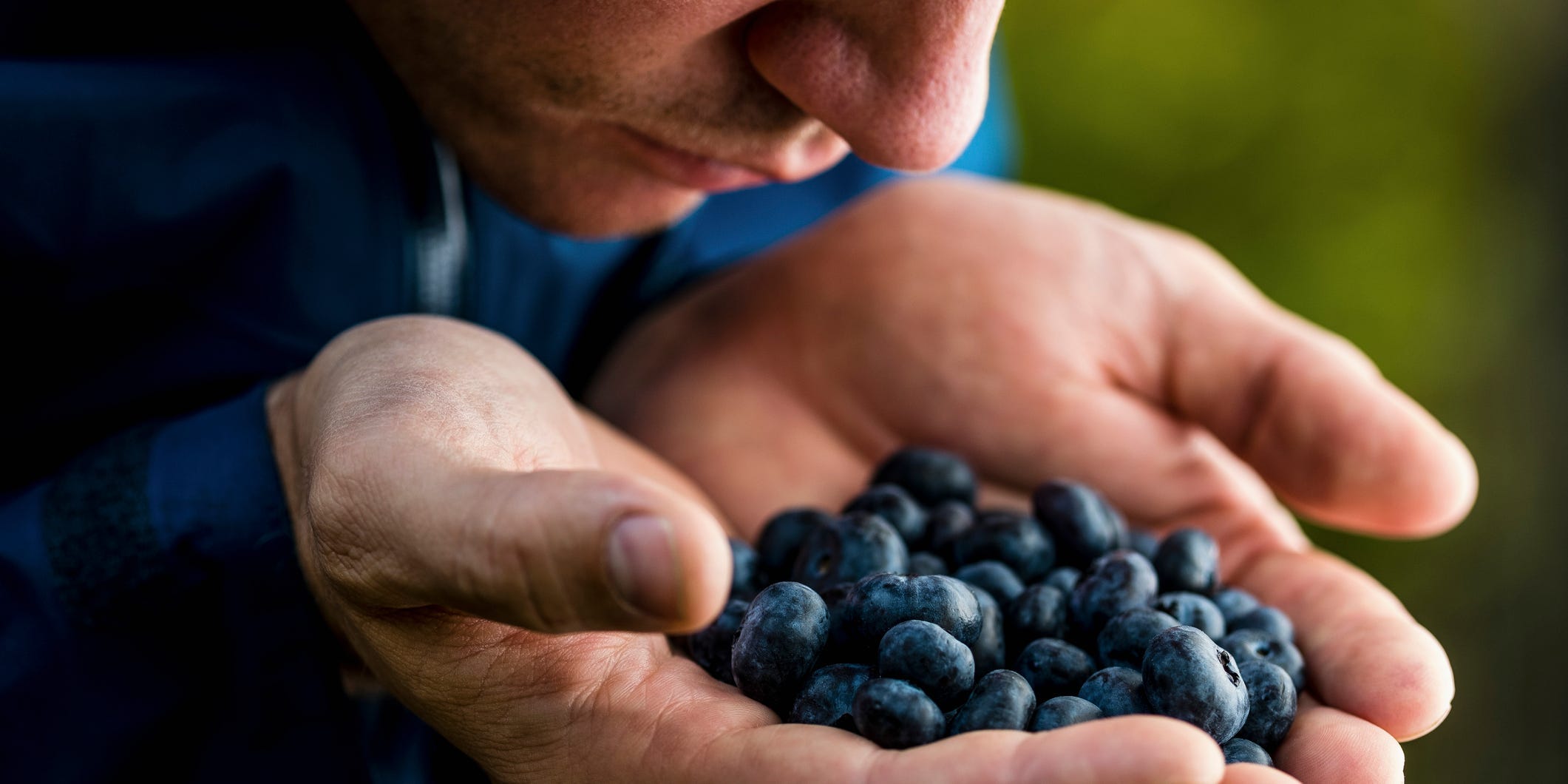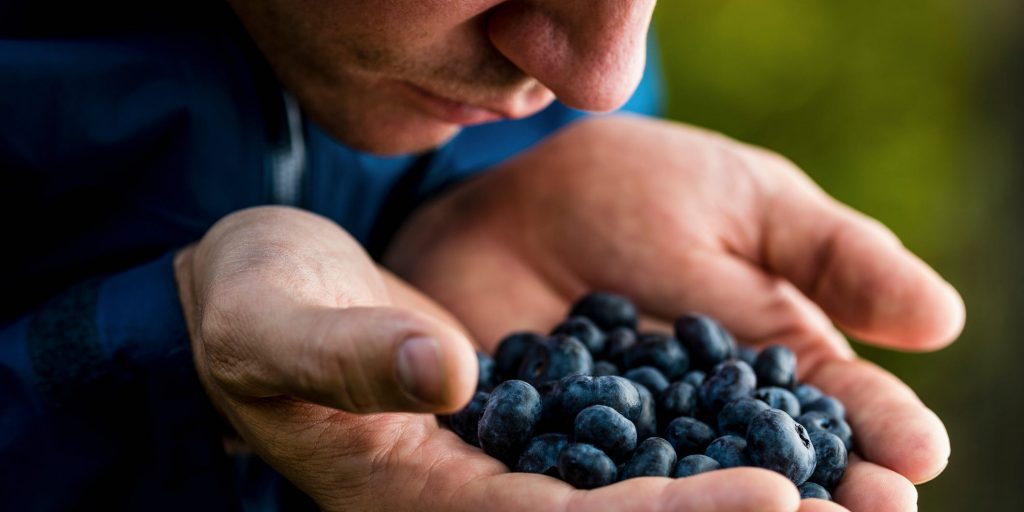
- Antioxidants can delay, or even prevent, cell damage caused by oxidative stress from free radicals.
- Oxidative stress is associated with cancer, cardiovascular disease, arthritis, and more.
- The best way to get enough antioxidants is to eat the recommended amount of fruits and vegetables.
- Visit Insider's Health Reference library for more advice.
Antioxidants have generated quite the buzz in recent years as a category of substances known to delay cell damage. While research indicates that antioxidants can reduce inflammation, it's still unclear exactly how this correlates with overall health.
Plus, antioxidant supplements aren't necessary if you're eating a healthy diet, and can be dangerous in some cases. For example, too much beta-carotene — the chemical that makes carrots and sweet potatoes orange — can increase the risk of cancer if you smoke.
In this article, we discuss what researchers know so far about the role of antioxidants and how to get enough in your diet.
Antioxidants protect your cells against free radicals
Antioxidants are substances found in plant foods, such as fruits, vegetables, pulses, coffee, and tea, along with supplements. They're essential to your health because antioxidants can prevent or delay cell damage caused by free radicals.
Free radicals are a normal byproduct of human life. For example, you produce them naturally in the form of lactic acid when you exercise. Free radicals can also come from outside sources like cigarette smoke, air pollution, certain medications, and sunlight.
The problem with free radicals is that they bind to cells in such a way that they damage the protein and DNA inside. However, that threat can be neutralized by antioxidants. That's why it's important to continually consume antioxidants in order to counter free radical damage in your body.
When you have too many free radicals running amok, it can cause cell damage — particularly in cell membranes, fatty tissue, DNA, and proteins — in the form of oxidative stress, which is associated with a number of diseases including:
- Cardiovascular disease
- Cancer
- Arthritis
- Neurodegenerative conditions like Alzheimer's
However, just because antioxidants in the body can stave off oxidative stress doesn't mean that consuming antioxidants — specifically — can reduce your risk of disease.
There's no definitive answer to whether or not consuming antioxidants, either through food or supplements, reduces cancer risk or improves heart health, says Tim Spector, MD, a professor of genetic epidemiology at King's College London. And any product marketing that says otherwise is pushing a wellness agenda that's not backed by research.
Ultimately, the health benefits associated with antioxidants likely goes hand-in-hand with the benefits of eating a diet rich in whole foods and leading a healthy lifestyle.
Scientists do know that antioxidants can help reduce inflammation, a process by which white blood cells protect your body from outside invaders like bacteria and viruses. When cells are damaged by an overabundance of free radicals, an inflammatory response can occur.
Foods like berries and green tea are rich in antioxidants
Your body naturally produces some helpful antioxidants in the form of glutathione and alpha lipoic acid. But you can also get antioxidants from your diet. Fruits, vegetables, and coffee are all rich in antioxidants.
There are thought to be hundreds, if not thousands, of substances that act as antioxidants. Antioxidants include vitamins like vitamin C, vitamin E, and beta-carotene as well as minerals like selenium and manganese. They exist in many foods, from blueberries to dark chocolate.
A 2010 study, looked at the antioxidant content of more than 3,100 foods, beverages, spices, herbs, and supplements, and found that a plant-based diet is best for protecting against oxidative stress. That's because plant-based foods have from 5 to 33 times more antioxidant content than meat products. According to the same study, some antioxidant-rich foods are:
- Cinnamon
- Allspice
- Basil
- Dill
- Coffee
- Tea
- Berries
- Dark chocolate
- Pecans
- Artichokes
- Kale
Spector says it's important to note that there is no single, antioxidant-rich superfood out there. Therefore, eating the recommended five servings per day of fruits and vegetables is the best way to help ensure you're getting all the antioxidants you need.
Antioxidant supplements may not be worth it
You can also take antioxidant supplements, there is limited evidence supporting the benefits of consuming antioxidants in the form of supplements.
For example, a 2010 meta-analysis on antioxidant research noted that multiple large-scale randomized clinical trials found no reduced risk for cardiovascular events in people who took antioxidant supplements.
And for a 2011 review, researchers reporter that supplemental antioxidants may not offer the same sufficient protection as an antioxidant-rich diet from whole foods.
In fact, it can be difficult to disentangle the direct health benefits of antioxidants from the other nutrients in foods where they occur. Spector notes that antioxidants work best when consumed as whole foods in the form of vegetables, fruits, and legumes, for example.
Beyond diet, other healthy lifestyle choices like avoiding exposure to cigarette smoke and air pollutants, can reduce your risk of oxidative stress.
Insider's takeaway
Antioxidants are healthy compounds that exist naturally in many whole fruits, vegetables, and herbs. They are important to help reduce oxidative stress and subsequent health consequences like cardiovascular disease and cancer.
Sources rich in antioxidants include basil, cinnamon, and berries. You can also purchase antioxidant supplements, but experts agree that antioxidants are best when consumed as whole foods.
